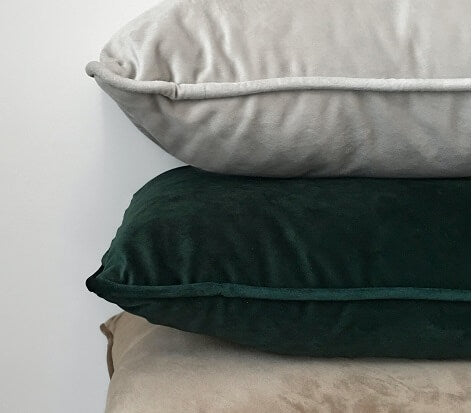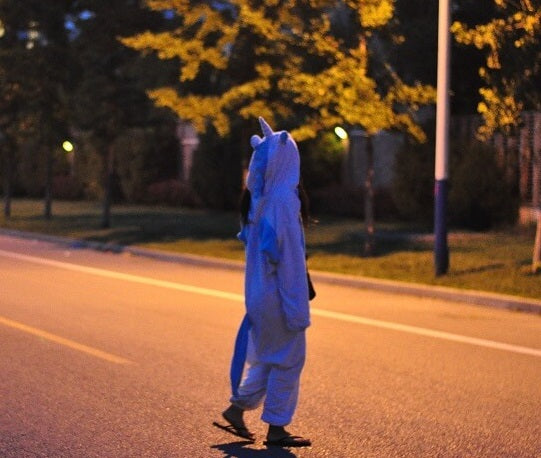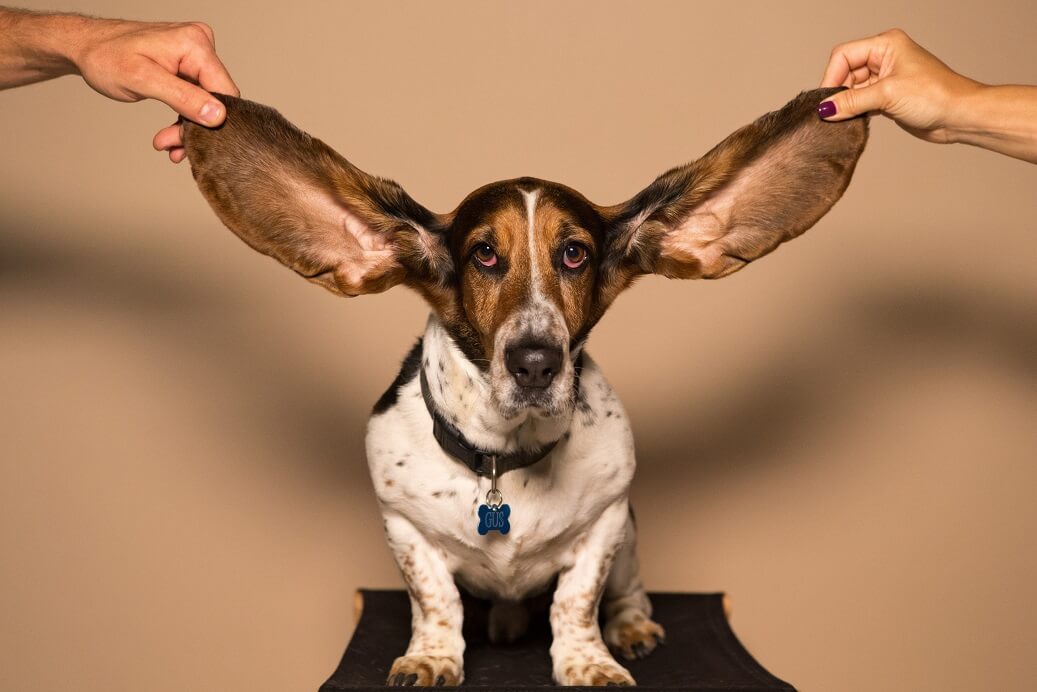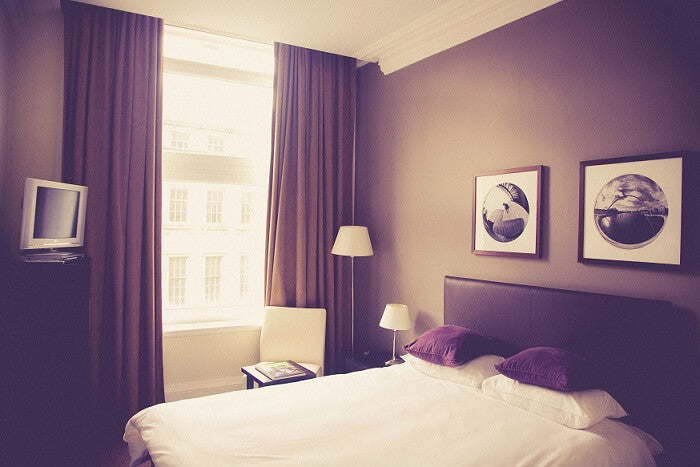In today's fast-paced world, getting a good night's sleep can sometimes feel like an elusive dream. From stress and anxiety to excessive screen time, there are countless factors that can disrupt our sleep patterns. However, one often overlooked solution that has been gaining popularity in recent years is the humble eye mask. By blocking out light and promoting the production of melatonin, eye masks have been found to significantly improve sleep quality. In this blog post, we will explore the science behind eye masks and how they can enhance your sleep with scientific precision.

Understanding the Basics of Sleep and Its Importance
Grasping the foundational aspects of sleep and acknowledging its critical role is essential for appreciating the benefits that eye masks can offer. Adequate sleep is not a luxury but a fundamental pillar of health, akin to a balanced diet or regular exercise. It facilitates brain functions such as memory consolidation, learning, and emotional processing, enabling us to navigate daily challenges with resilience and clarity. Physiologically, sleep aids in the repair of heart and blood vessels, supports growth and stress regulation, and plays a key role in immune function. The repercussions of insufficient sleep extend beyond mere fatigue, contributing to a spectrum of potential health problems such as increased risk of chronic diseases, impaired judgement, and heightened anxiety levels. Understanding these dynamics underscores the importance of fostering good sleep habits and creating optimal conditions for restful sleep, highlighting the potential role eye masks can play in achieving a state of restorative slumber. This foundational knowledge sets the stage for exploring the specific benefits and mechanisms by which eye masks facilitate improved sleep quality, by fostering an environment conducive to the natural sleep process.
The Science Behind Light Pollution and Sleep Disturbance
Light pollution, the intrusive artificial light that permeates our nights, has emerged as a formidable foe against restful sleep. It's not just the glaring streetlights or the neon signs that are at fault, but also the pervasive glow of electronic devices that bathe our bedrooms in blue light. This artificial illumination interferes with our body's circadian rhythms - the internal clock that dictates our sleep-wake cycle. Scientific studies have illuminated how exposure to blue light, particularly during evening hours, significantly hampers melatonin production. Melatonin is often referred to as the 'sleep hormone', pivotal in signaling our bodies it's time to rest. The detrimental effects of light pollution extend beyond delayed sleep onset; they also compromise our ability to enjoy deep, restorative sleep phases. As our environments become increasingly saturated with artificial light, understanding its impact on sleep is critical. This growing awareness sheds light on the mechanisms through which light pollution disrupts our natural sleep patterns, reinforcing the necessity of mitigating its influence to safeguard our sleep health.
What is the effect of eye mask on sleep quality in patients of coronary care unit?Mean time of patients' nocturnal sleep was 6.6 ± 1.1 hours. Using eye mask have statistically significant increased the quality of sleep in subscales disturbance and effectiveness (p < 0.05).
Eye Masks: The Guardians of Darkness
Eye masks serve as a crucial shield in our battle against the pervasive intrusion of light into our sleeping environments. In their essence, these simple yet effective accessories function as a blackout curtain for the eyes, meticulously crafted to eliminate any form of light penetration. This intentional barrier plays a significant role in aligning our body's internal clock, or circadian rhythm, with the natural cycle of day and night, a process essential for initiating the sleep phase.
The effectiveness of eye masks extends beyond merely blocking light; it nurtures an optimal sleep setting that encourages the body to enter a state conducive to rest. By simulating the complete darkness our ancestors experienced, eye masks tap into a primal cue for sleep, facilitating a quicker transition to slumber and aiding in the uninterrupted continuation of the sleep cycle.
This mechanism is not just beneficial but transformative for individuals living in areas where artificial light seeps into every corner of the night. For city dwellers or those who must sleep during daylight hours, such as shift workers, the eye mask becomes an indispensable ally. It provides a portable and convenient solution to counteract the sleep-disrupting effects of light pollution, enabling a sanctuary of darkness regardless of the surrounding environment.
By fostering a conducive sleep environment, eye masks empower us to reclaim control over our sleep quality, offering a straightforward yet profoundly impactful method to enhance our nightly rest.
The Impact of Eye Masks on Melatonin Production
The utility of eye masks extends to a profound physiological response within our bodies - the elevation of melatonin, a critical sleep-regulating hormone. By creating an environment of complete darkness, eye masks effectively encourage the pineal gland to produce and release melatonin, which naturally prepares the body for sleep. This elevation is not merely a subtle change; research indicates a significant boost in melatonin levels when light exposure is minimized at bedtime, facilitating a smoother transition into sleep. The enhanced melatonin production not only assists in falling asleep more quickly but also contributes to the depth and quality of sleep, allowing for a more restorative night's rest. This effect is particularly advantageous for those grappling with erratic sleep schedules or environments inundated with artificial light. Eye masks, therefore, offer a non-pharmacological approach to bolster melatonin levels, circumventing the need for external sleep aids or supplements. The simplicity of this solution belies its effectiveness, providing a bridge to better sleep for those who find themselves restless in the night. By leveraging the body's natural sleep mechanisms, eye masks stand out as a pivotal tool in the quest for improved sleep health, underscoring the symbiotic relationship between darkness and the biological imperatives of sleep.

Eye Masks as a Tool for Combating Sleep Disorders
Eye masks prove invaluable for those facing sleep disturbances such as insomnia or sleep apnea. These conditions often make it challenging to achieve the deep, restful state necessary for physical and mental recovery. By simulating complete darkness, eye masks encourage a tranquil sleep environment, which can significantly ease the mind into a more relaxed state, thus aiding in quicker sleep onset and reducing nighttime awakenings. Their role in enhancing melatonin production is particularly beneficial for individuals with disrupted circadian rhythms, offering a natural method to encourage sleep without reliance on medication. Moreover, the sensory reduction that eye masks provide helps mitigate distractions that can exacerbate sleep disorders, creating a sanctuary of calmness conducive to uninterrupted sleep. For those navigating the complexities of sleep-related issues, integrating an eye mask into their sleep hygiene practices can serve as a gentle, yet effective, strategy towards achieving better sleep quality and, by extension, improving overall health and well-being.
Choosing the Right Eye Mask for You
Selecting the perfect eye mask involves navigating a plethora of styles and materials designed to cater to various preferences and needs. The material of an eye mask can significantly affect your comfort level and the quality of sleep you achieve. For instance,
- silk and satin options offer a soft, luxurious feel that is gentle on the skin, reducing the likelihood of developing wrinkles or skin irritation.
- Memory foam masks, on the other hand, conform to the contours of your face, providing a snug fit that ensures complete darkness.
- If you’re someone who struggles with puffiness or sinus pressure, gel-infused eye masks can offer a soothing, cooling effect that enhances relaxation before sleep.
Adjustability is another crucial factor to consider. An eye mask with adjustable straps can accommodate different head sizes, ensuring a secure yet comfortable fit that won’t slip off during the night. This feature is particularly important for restless sleepers who might find a poorly fitted mask more of a distraction than an aid.
For those seeking additional benefits, some eye masks come equipped with unique features such as built-in Bluetooth speakers for listening to calming music or ambient sounds, and pockets for inserting scented sachets or herbal packets that can promote relaxation through aromatherapy. Exploring these options allows you to personalize your sleep experience, turning a simple eye mask into a multifunctional tool for enhancing your nightly rest. Experimenting with different types and features will help you discover the eye mask that not only blocks out light effectively but also aligns with your personal comfort preferences and lifestyle needs.
How does the sleep mask work to help you control your dreams?Lucid dream masks use timers or movement sensors to estimate when the dreamer is in REM sleep. Then, depending on their specific feature set, lucid dream masks alert the dreamer using audio, visual, or tactile cues: Audio Cues: Audio cues may include sounds, or voice messages recorded by the dreamer themselves.
Incorporating Eye Masks into Your Nightly Routine
To effectively integrate eye masks into your bedtime regimen, make it a key component of your evening unwind. This could involve slipping on the eye mask after engaging in soothing activities like gentle stretching, journaling, or listening to soft music. It’s also beneficial to ensure that your sleep environment is optimized for rest by keeping it cool, quiet, and comfortable. Establishing a consistent routine where the eye mask becomes a signal to your body that it's time to sleep can significantly enhance the quality of your rest. Embrace the eye mask as not just a tool, but as a nightly ritual that prepares you mentally and physically for a deep, healing sleep. This approach can help you transition more smoothly into sleep, making the most of the eye mask’s benefits for a rejuvenated morning.






